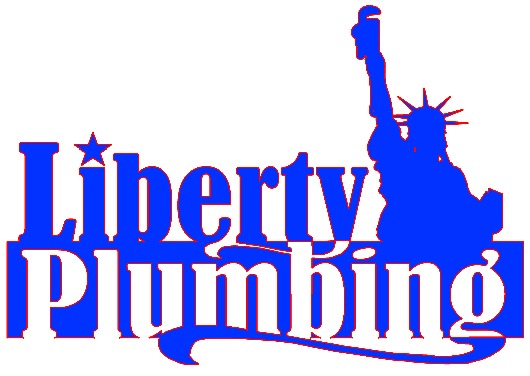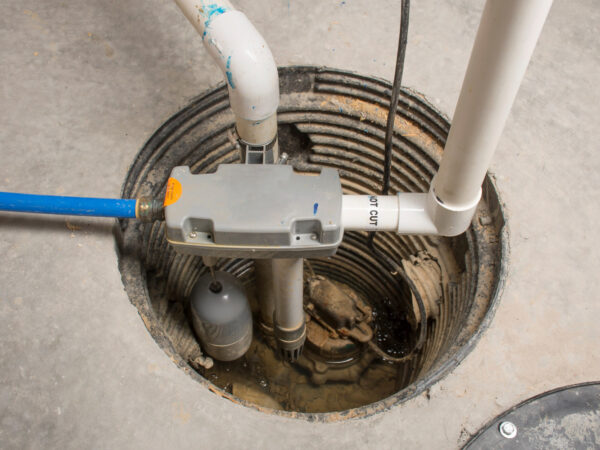Your sump pump is something you probably don’t think about until you need it. Hidden away in your basement or crawl space, it quietly stands guard, ready to protect your home from water damage. But here’s the truth: if you don’t check and maintain your sump pump, it might not be ready when you need it most.
What Does a Sump Pump Do?
A sump pump is designed to keep your basement or crawl space dry by pumping out water that collects in the sump pit. During heavy rainstorms, snow melts, or plumbing leaks, the sump pump is your first line of defense against flooding. Without it, water can seep into your foundation, damage walls and flooring, and even ruin valuables stored in your basement.
Why Regular Sump Pump Checks Are So Important for Your Northern Virginia Home
A sump pump isn’t something you rely on every day—but when you need it, it has to work. Regular checks make the difference between a dry basement and a costly disaster. Here’s why it matters:
- Flood Prevention = Cost Prevention: A flooded basement can cost anywhere from a few thousand dollars to tens of thousands in repairs. Carpeting, furniture, drywall, and personal belongings can all be ruined in hours. Making sure your sump pump works is a simple way to avoid what could be a real nightmare!
- Mold and Mildew Control: Even small amounts of standing water or excess dampness can lead to mold growth. Mold isn’t just an eyesore—it can damage your home’s structure and create health risks for your family, especially those with allergies or asthma.
- Foundation Protection: When water isn’t redirected properly, it can put pressure on your foundation walls. Over time, this leads to cracks, shifting, and long-term structural damage that’s far more expensive to fix than maintaining a pump.
- Longer Equipment Life: Just like a car needs oil changes, your sump pump needs routine checks. Running it dry, letting debris clog the system, or ignoring small issues can shorten its lifespan. Regular maintenance ensures it’s ready to perform when you need it most.
- Peace of Mind During Storms: Heavy rain and power outages often go hand in hand. Knowing your sump pump has been tested—and ideally has a backup system—gives you confidence that your home is protected, even in the worst weather.
- Protects Indoor Air Quality – Standing water and excess moisture lead to mold and mildew growth, which can affect your family’s health.
Signs Your Sump Pump Needs Attention
Your sump pump often sits quietly out of sight, so it’s easy to forget about until there’s a problem. The good news is your pump will usually give you warning signs before it fails completely. Here’s what to watch for:
- Strange Noises: A healthy sump pump runs with a steady, low hum. If you hear grinding, rattling, or gurgling, it could mean worn-out bearings, a jammed impeller, or loose parts inside the pump. These noises signal the pump is struggling and may fail soon.
- Constant Running: Your sump pump should only run when water enters the pit. If it’s running nonstop, even in dry weather, the float switch might be stuck, the check valve may have failed, or the pump could be undersized for your home’s needs. A pump that never shuts off will burn out faster.
- Failure to Run at All: If water levels rise but the pump doesn’t kick on, that’s a red flag. This can happen due to electrical issues, a stuck float, a clogged intake, or a motor failure. In any case, it means the pump isn’t protecting your home.
- Visible Rust or Corrosion: Rust on the pump or its components may indicate corrosion from minerals in the water—or bacteria that can create “iron ochre,” a sludge that clogs pipes and damages pumps. Left unchecked, corrosion shortens the pump’s lifespan.
- Debris in the Pit: Dirt, gravel, and other debris can clog the pump or block the float switch. If the pit isn’t kept clean, the pump may jam or fail to turn on when needed.
- Musty or Foul Odors: Bad smells coming from the sump pit usually point to stagnant water, mold growth, or sewage backflow. Not only is this unpleasant, but it also signals that water isn’t being moved out of your home efficiently.
- Age of the Pump: Even without visible problems, sump pumps don’t last forever. Most pumps have a lifespan of 7–10 years. If yours is older and hasn’t been serviced, it’s smart to have it inspected before storm season.
Protect Your Northern Virginia Home with Liberty Plumbing
A sump pump failure can lead to thousands in damages, but a quick check today can save you the headache tomorrow. At Liberty Plumbing, we offer sump pump inspections, maintenance, and replacements in Northern Virginia, to keep your home dry and safe year-round.
Don’t wait for the next heavy rain to test your sump pump. Call Liberty Plumbing today to schedule your inspection and protect your home from unexpected flooding.

